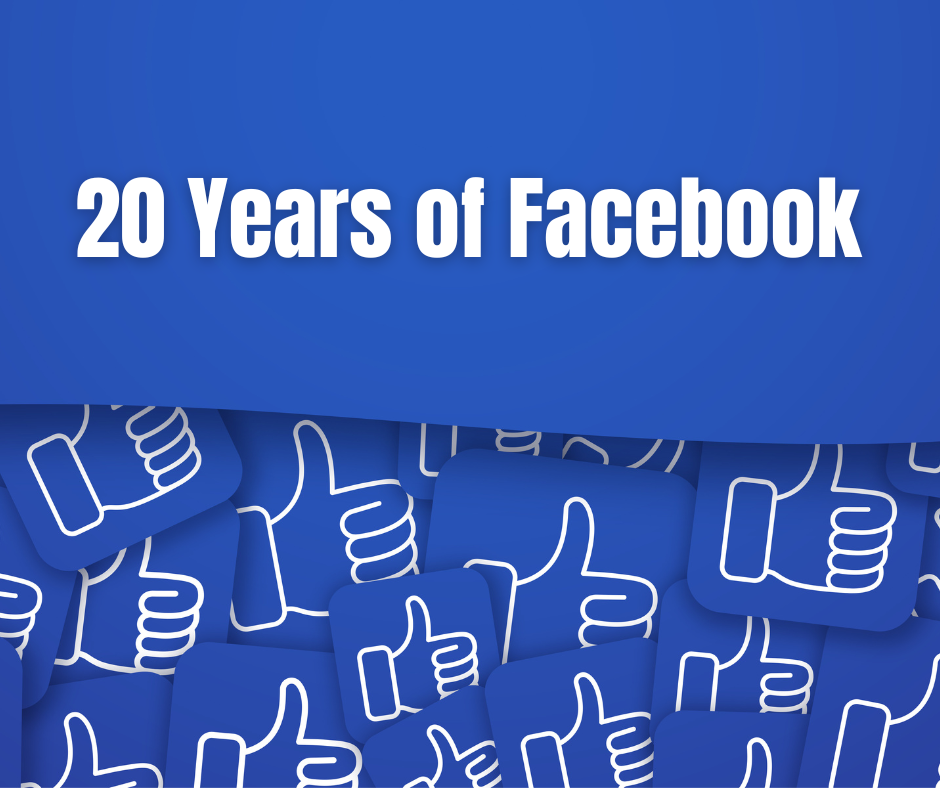What We Should Learn About Ourselves, On the Occasion of Facebook’s 20th Birthday
Twenty years into the social media revolution, of which Facebook is the poster child, we need to reassess and renew our fundamental democratic principles.

The world has recently celebrated 20 years of Facebook. Together with its younger siblings—Instagram, Messenger, WhatsApp, the LLAMDA artificial intelligence model, and the parent company now known as Meta—Facebook has become a metonym for the current age and all that it represents. It has broken apart key social contracts that have historically come together to uphold democratic institutions, instead becoming an engine for the rampant spread of disinformation, while incentivizing and providing cover for the worst behavior among both the public and its elected leaders. But first, we must remember the long journey we have taken to reach this point.
At first, Facebook allowed us to find forgotten friends and distant relatives, build communities, and organize ourselves to achieve worthy goals, often transcending borders and cultures. We shared ideas, pictures, and videos with our friends and the world, and became critics of media, books, and politics. We moved from “accounts” to “pages,” we sold clothes on Marketplace, and we joined groups. The “Like” button, which was launched in 2009, changed how we respond to anything in our feed, and we learned to present ourselves to the world in real time using Facebook Live and Stories.
Over time, we also became aware of the company’s potential for harmful impact, as its desire to connect the world became enmeshed with its desire for ever larger profits. We came to understand how algorithms generate and shape the content we view in our feed—not according to what is “new, important, and interesting” for us as citizens, but according to criteria of what excites us, annoys us, validates us, and pushes us to engage—and became aware of the extent to which this drives political polarization and hate.
We discovered what highly targeted personal advertising looks like, as profits were generated on our individual weaknesses and on the digital trail of breadcrumbs we leave behind. We were exposed to scandals such as the Cambridge Analytica affair and attempts to influence election campaigns, and we came to understand that the threat of disinformation must be thought of on the same scale as other existential global threats. We saw how Facebook groups were used for purposes of political radicalization, to spread conspiracy theories, and organize for acts of violence. We fumed about the company’s inadequate response to harmful content, and were appalled by how such content could contribute to terrible and bloody events.
Indeed, the two decades of Facebook have also seen the company’s executives vilified in the media and before Congress, and be hit with huge fines, which the European Union is effective at imposing. Lawsuits, indictments, and fines were issued on both sides of the Atlantic for privacy violations, use of facial recognition, and anti-competitive practices. When Facebook created its own Oversight Board to address such failings, we saw this as further proof that it inhabits its own sovereign space, and is in practice a global state-like actor.
But in certain respects, 20 years of Facebook have not only created a process that threatens and erodes the liberal values of the democratic West and highlighted the need for regulation and for the tech giants. The social processes that Facebook has instigated have also uncovered structural weaknesses and challenged core assumptions with regard to the project of democracy itself. Here are a few examples:
First, in an age in which social media platforms allow people unprecedented access to other people, the moral assumption that there is basic good in every human being, and that they will tend to behave in a respectful and thoughtful manner to others, has been found to be false, at least behind the veil of a screen.
Second, despite this being the “information age,” it has become increasingly difficult to differentiate between true and false information and to avoid spreading conspiracy theories. The legal assumption that having a rich "marketplace of ideas," free from regime censorship, will ensure that we are able to carefully examine reality and reach the truth, has been found to be false.
Third, the need for elected officials to provide an immediate response to the herds of trolls on social media has created a situation in which they are unable to compromise and to reach understandings and agreements, and instead must constantly make their behavior and speech ever more extreme, doubling down so as to gain the support of the rabble. That is, the fundamental establishment assumption known as the “representation problem,” according to which a direct, constant, and interactive relationship between the public and its elected officials is necessary to ensure that these officials act in the common good, has been found to be false.
Twenty years into the social media revolution, of which Facebook is the poster child, we need to reassess and renew our fundamental democratic principles. We need to refresh the constitutional theories that shape our understanding of human rights, chief among them the right to freedom of expression and the right to privacy; we need to ask hard questions about the need for behavioral frameworks that are designed to prevent “man being wolf to man,” including when at the keyboard; and we need to think again about the proper distance between the public and its representatives, whom it is supposed to elect once every four years, and not every moment anew. These are not easy tasks, and they will require thorough examination, understanding, and thought. But in the end, is this not what we expect of ourselves, living as we do in the “age of informed mankind”?
